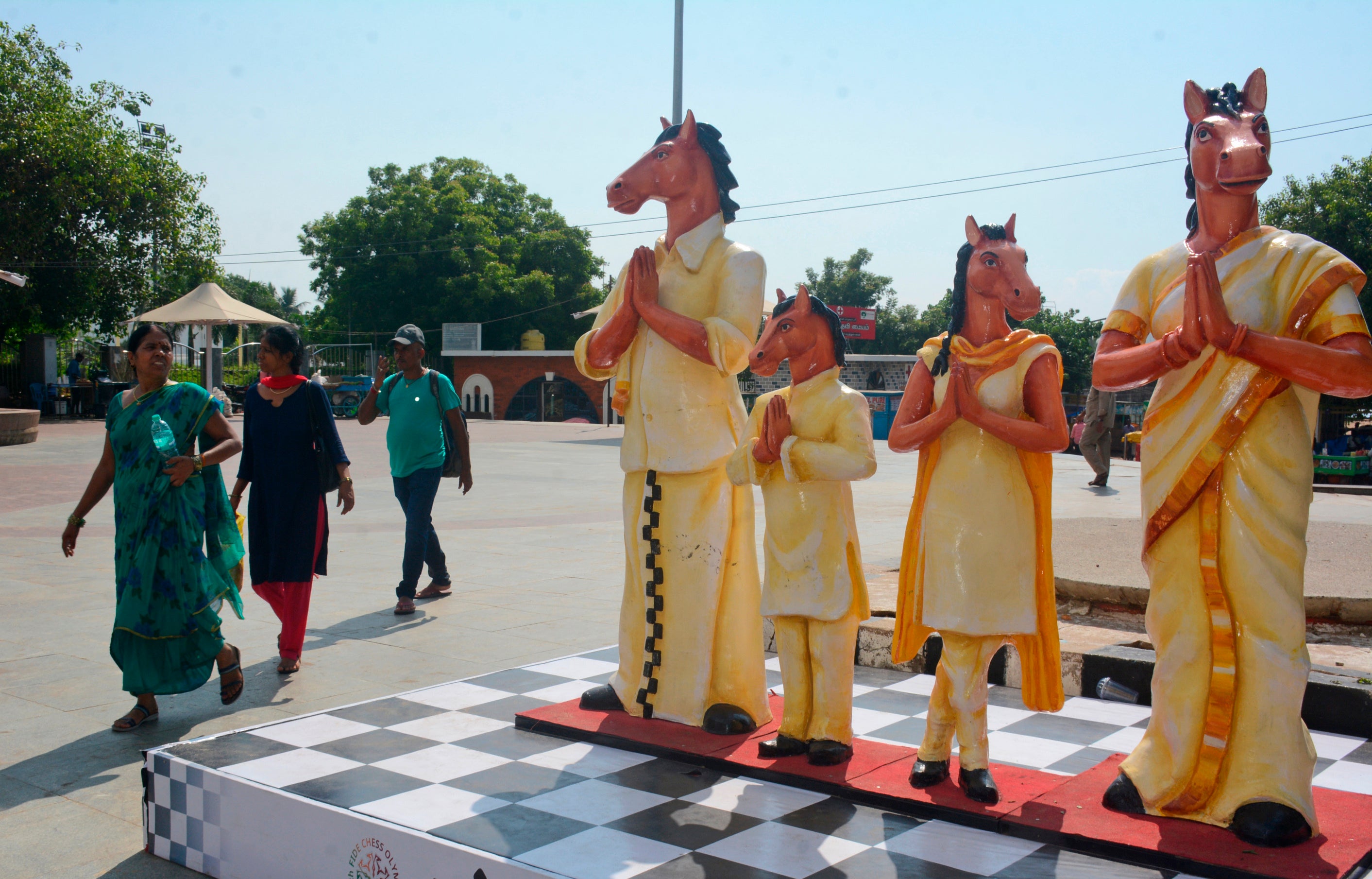Pakistan pulls out of international chess tournament in row over Kashmir torch relay
Islamabad accuses New Delhi of ‘politicisation’ of tournament
Pakistan has pulled out of the International Chess Olympiad hosted by India, citing the “politicisation” of the tournament by the passing of the torch relay through New Delhi-administered Jammu and Kashmir.
The 44th edition of the marquee event, hosted by India for the first time, was inaugurated by prime minister Narendra Modi on Thursday in the southern city of Chennai.
The tournament will be held between 28 July and 10 August in Mamallapuram, located 50km from Chennai.
The event that was moved out of Russia due to Vladimir Putin’s invasion of Ukraine has attracted a record number of entries in the Open (188) and women’s (162) sections.
A Pakistani contingent of five male and five female players were set to participate, the Chess Federation of Pakistan said on Tuesday, two days before Islamabad announced its withdrawal from the event.
On Thursday, Pakistan accused New Delhi of “politicising” the event by passing the torch relay for the tournament through the city of Srinagar in India-administered Kashmir on 21 June.
The torch relay went through 75 cities in 40 days before it reached the venue for the official opening ceremony.

India and Pakistan both administer a portion of the Himalayan region of Kashmir and claim it in its entirety, in a dispute that dates back to the partition of India after the end of British rule. Many Kashmiris would prefer the region be granted independence from both countries, but there is no clear opinion polling on where the majority view lies.
“Regrettably, India has chosen to politicise this prestigious international sporting event by passing the torch relay of this event through the Indian Illegally Occupied Jammu and Kashmir (IIOJK),” Pakistan’s foreign ministry said.
“By passing the torch relay through IIOJK, in utter disregard of the globally acknowledged ‘disputed’ status of the territory, India has committed a travesty that the international community cannot accept under any circumstances.
“India must know that by such provocative and indefensible actions, it can neither seek nor claim international legitimacy for its unjustifiable, illegal and tyrannical occupation of IIOJK continuing for over 7 decades.”
New Delhi, meanwhile, said it was “surprised” Pakistan had decided not to participate even after its team reached India.
It is “highly unfortunate” that Pakistan has “politicised” the prestigious international event, India’s foreign ministry spokesperson Arindam Bagchi said.
Jammu Kashmir and Ladakh “have been, are and will remain an integral part of India”, he added.
On Thursday, Pakistan also urged the international community to call upon India to end “the gross and systematic violations of human rights in IIOJK, revoke its illegal and unilateral actions of 5 August 2019, and free all political prisoners, including the true Kashmiri leaders”.
In August 2019, India unilaterally stripped away Jammu and Kashmir’s special constitutional autonomy. The move that downgraded Jammu and Kashmir state into two federally-controlled territories was accompanied by a huge build-up of military forces, mass detentions, a complete lockdown on movement and a shutdown of the internet.
Many ethnic Kashmiris and Pakistan saw the move as an attempt to use settlers to engineer a demographic change in India’s only Muslim-majority region.
Join our commenting forum
Join thought-provoking conversations, follow other Independent readers and see their replies
Comments
Bookmark popover
Removed from bookmarks